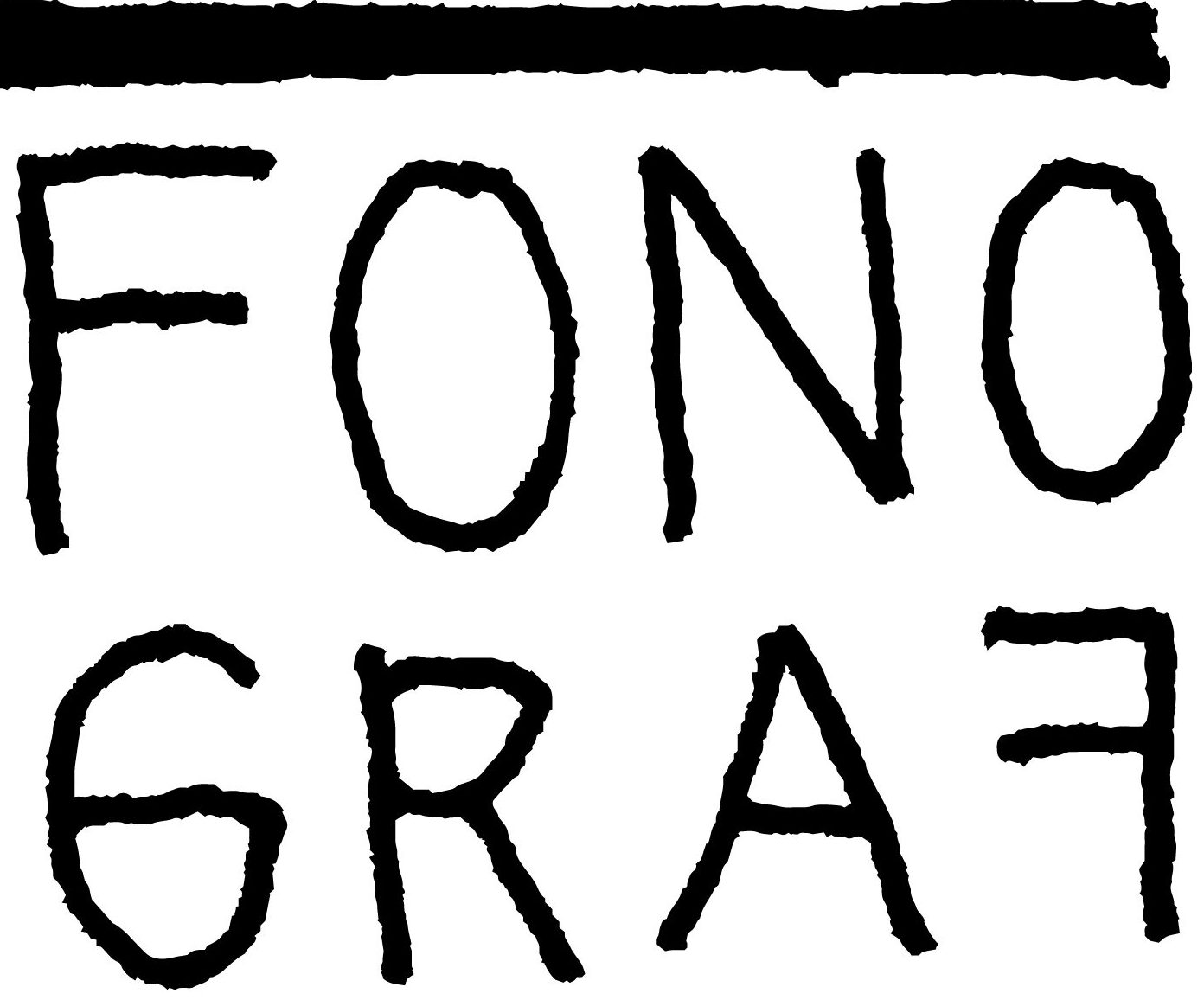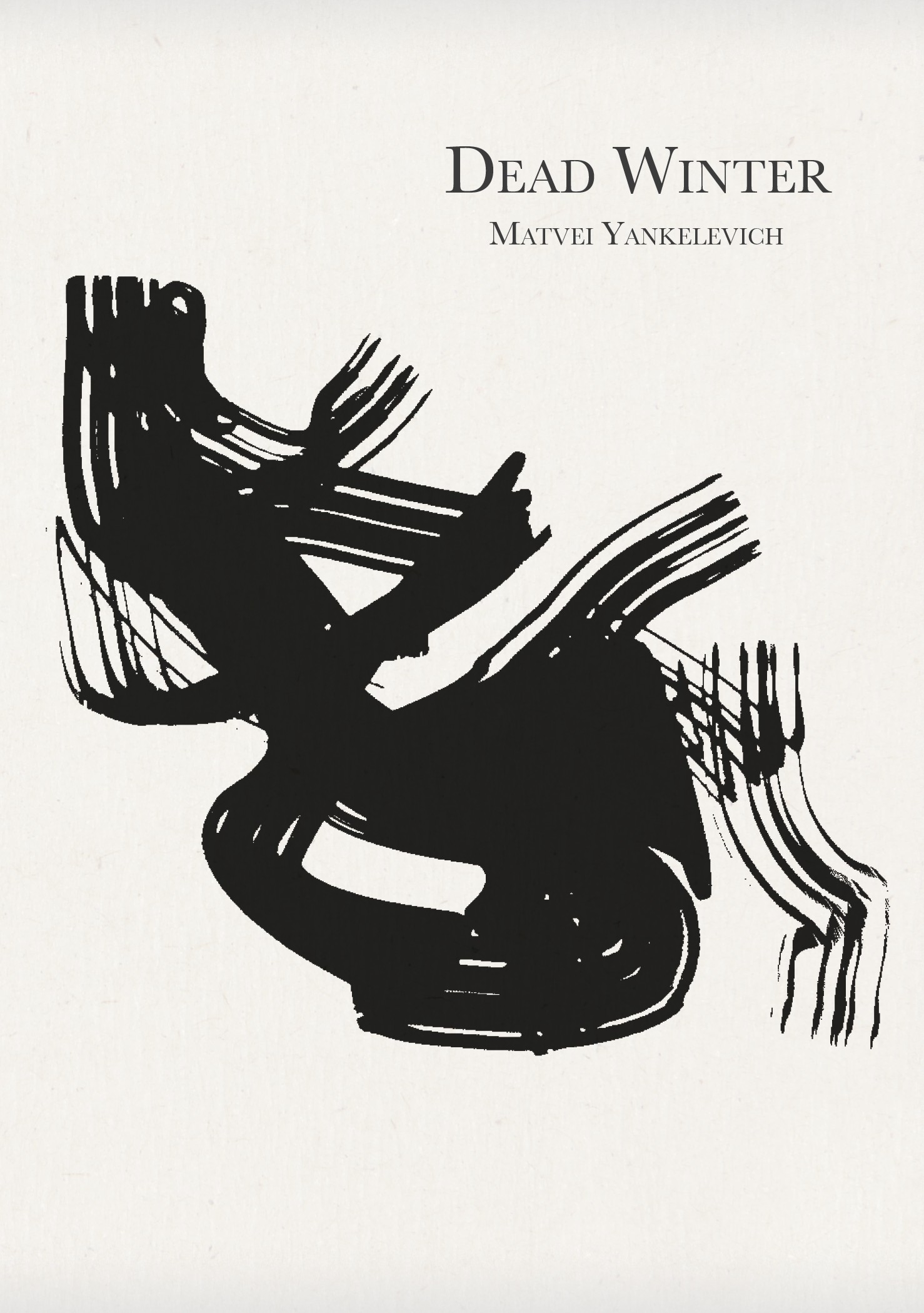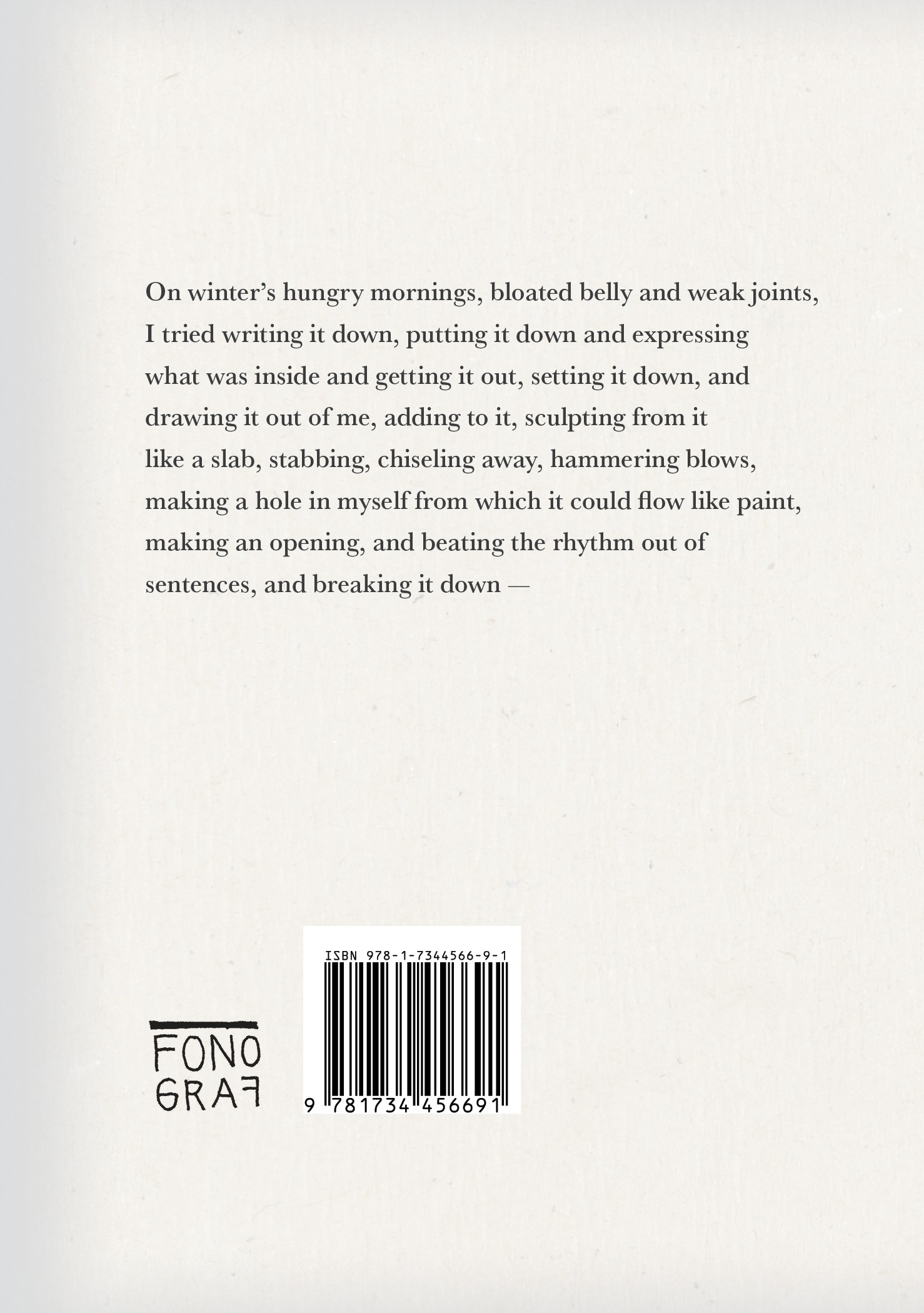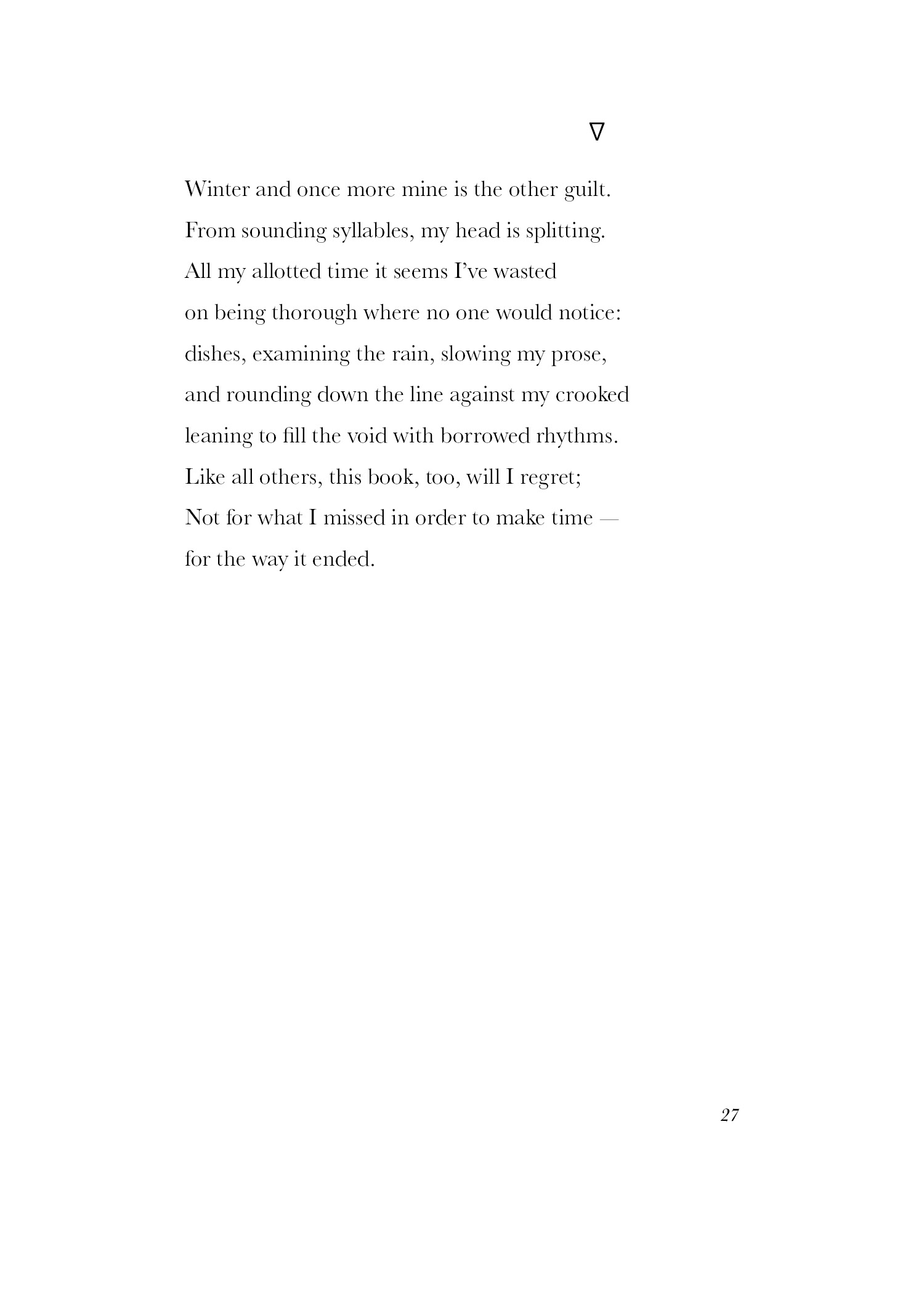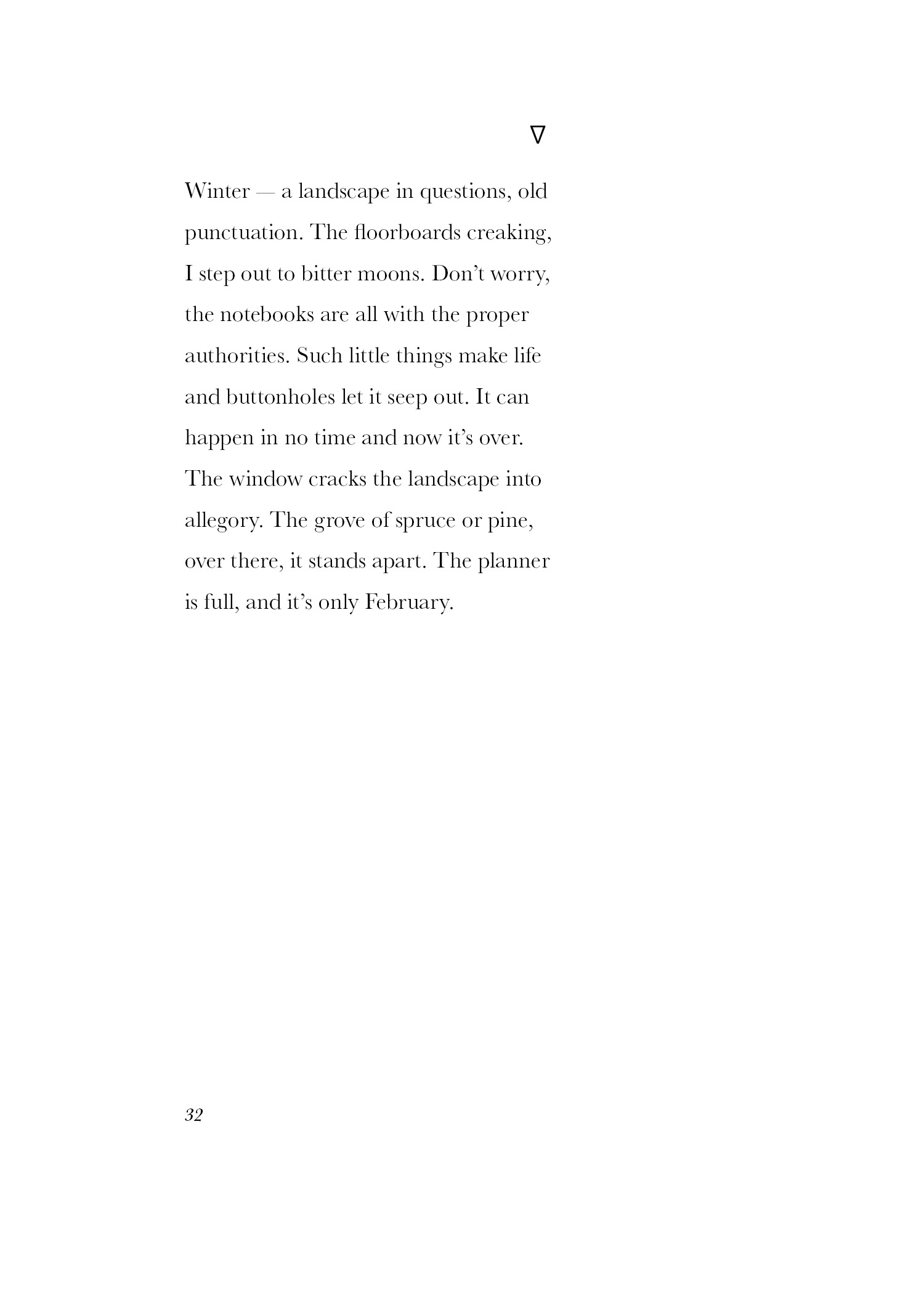F0NO19 // Matvei Yankelevich – Dead Winter (print; chapbook)
$10.95
Release Date: January 13, 2022
Description
These twenty-seven poems of Dead Winter continue the poet’s ongoing “From a Winter Notebook” cycle which plays on traditional winter themes of stasis, ruin, aging, lost love, belatedness, dormancy, and decline. Aggressively personal, by turns ironic and sentimental, mixing colloquial and archly artificial diction, rife with quotations and reference to a wide variety of lyric traditions, these poems stage a polyphonic and ambivalent internal dialog that vacillates between the often-contradictory desires of social justice and personal freedom. Straining to resist impending erosion in the political tide, the singular voice seeks to hold these contradictions up to the light and to contemplate their prismatic refractions without resolution. Caught between complicity and antagonism, between the impending obsolescence of inherited poetic traditions and a desire to commune with the contemporary, the voice churns on—miming winter’s monotony—to carve out a space for melancholic complaint and anxious meditation on the end-times endeavor of the lyric mode itself. Through representations of desire and melancholy in a technologically invasive era, these poems also ask about the effect of technological and political shifts on the bounds of the personal, and of the way a techno-oriented sociality impinges on interpersonal relationships, the interior dialogs of the self, and the writing of poetry.
E-book available here.
About the Author
 Matvei Yankelevich is a poet, translator, and editor whose books include Some Worlds for Dr. Vogt (Black Square), Alpha Donut (United Artists), Boris by the Sea (Octopus), and, most recently, the chapbook From a Winter Notebook (Alder & Frankia). His translations from Russian include Today I Wrote Nothing: The Selected Writings of Daniil Kharms (Overlook) and, with Eugene Ostashevsky, Alexander Vvedensky’s An Invitation for Me to Think (NYRB Poets), which received the 2014 National Translation Award. He has been awarded fellowships from the National Endowment for the Arts, the New York Foundation for the Arts, and the National Endowment for Humanities. In the 1990s, he co-founded Ugly Duckling Presse where he edited, designed, and produced a variety of books, chapbooks, periodicals, and broadsides, co-edited 6×6 magazine, and curated the Eastern European Poets Series. He teaches translation and book arts at Columbia University’s School of the Arts.
Matvei Yankelevich is a poet, translator, and editor whose books include Some Worlds for Dr. Vogt (Black Square), Alpha Donut (United Artists), Boris by the Sea (Octopus), and, most recently, the chapbook From a Winter Notebook (Alder & Frankia). His translations from Russian include Today I Wrote Nothing: The Selected Writings of Daniil Kharms (Overlook) and, with Eugene Ostashevsky, Alexander Vvedensky’s An Invitation for Me to Think (NYRB Poets), which received the 2014 National Translation Award. He has been awarded fellowships from the National Endowment for the Arts, the New York Foundation for the Arts, and the National Endowment for Humanities. In the 1990s, he co-founded Ugly Duckling Presse where he edited, designed, and produced a variety of books, chapbooks, periodicals, and broadsides, co-edited 6×6 magazine, and curated the Eastern European Poets Series. He teaches translation and book arts at Columbia University’s School of the Arts.
Praise
PRAISE for previous work by Matvei Yankelevich
[…] Each poem in the collection is complex for different reasons and takes time to plumb, to attend to all that is going on—references, complex use of language, juxtapositions of scenes and words, self-conscious allusion to genres, desire for and skepticism of any particular “world.” Each, moreover, questions its own procedures, is attentive to the constructedness of meaning and also to the constructedness of the physical text by references to the pen, to printing, to vocabulary, to artifice; yet, it seems to me, this is all done with a light touch, avoiding over-emphasis—indeed things move too quickly for that—and we are left to contemplate/gape at the views we are given. Throughout there is a dialogue between the self and the material world that is “not me” and is “said to be out there,” although, of course, the separation between them can also be just a hypothetical proposition to be considered, and considered from as many angles as possible […] Although the lines and vocabulary appear relatively simple, items often change places with named aspects of language and jostle one’s initial take. The text seems fluid, reordering itself in one’s mind and I often want to question my own takes as I read. Each poetic maneuver, each arrangement of lines is deft, seemingly executed without effort. […]
— Martha Ronk, Constant Critic [review of Some Worlds for Dr. Vogt]
The most unsparing poets who live and write in New York absorb the city into their work, and Yankelevich stands in this tradition of the fast-talking, wry, and welcoming metropolitan poet. Even when he is harkening back to his Russian heritage, recalling “[Osip Mandelstam’s]/ poem about exclamation points/ of rifles,” Yankelevich speaks and sees the world with the fragmented eye of a New Yorker, where “a street/ is a country unto itself” and he can always “hear the straining of the accordion/ in the last phrases of ‘Port Arthur.’ ” Peppered with tiny, untitled missives that read like melancholy jottings on scrap paper (“stay away from me/ bar dog/ I’m trouble”), Yankelevich’s is the work of a poet as much in love with language and conversation as he is with the world. He follows his nerve at every turn, offering up a list of choice Melvillean beers on one page (“Bartleby the Pilsener/ Billy Budweiser/ Benito Cervesa”) and then misquoting Xerxes and moving into an exhausted, scrooged-out rant on the shortcomings of the New Yorkers around him on the next. Though his unsparing generosity might not always be pretty, it’s certainly as honest as they come in New York.
— Publisher’s Weekly [review of Alpha Donut]
[…] Matvei Yankelevich is an unrivaled cultural provider for those who want to know about the neglected poets of our turbulent times. His translation of Today I Wrote Nothing: The Selected Writings of Daniil Kharms (Overlook TP, 2009) was a major event recognized by the TLS and the Guardian. In his own writing, his humor is at once playful and dark: “My work is simply writing on the page. There is no more depth. Where there is depth it gets too dark to see. Some days I feel like seeing no one.” The logic of these lines is discovered through the poet’s attention to words. That’s what elevates Yankelevich’s seemingly casual poetry into another realm of consciousness.
— John Yau & Albert Mobilio, Hyperallergic [review of Alpha Donut]
